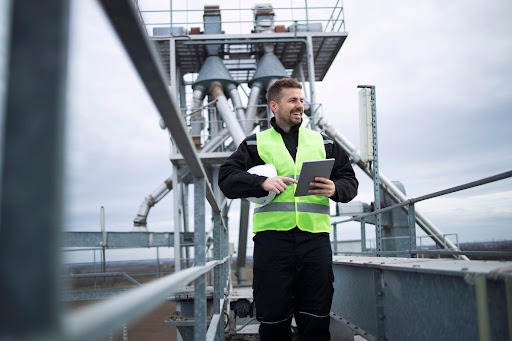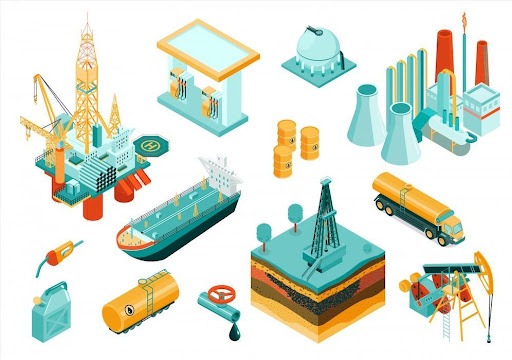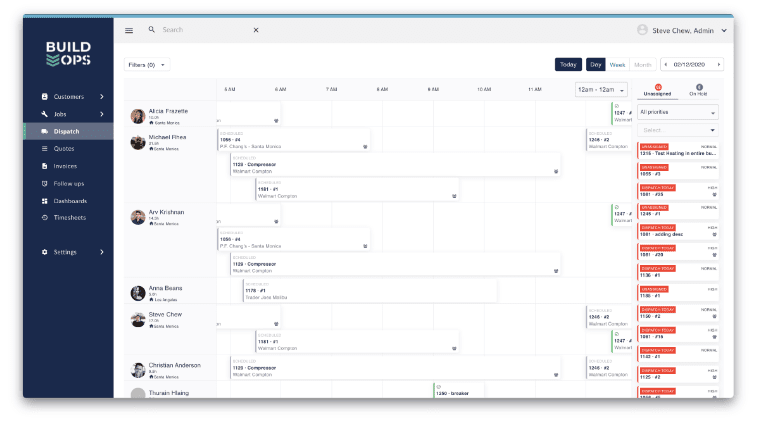How Technology Is Impacting the Oil and Gas Industry: Currently, the Oil and Gas industry is going through some challenging times. There are many things stacked against it. The public perception of this massive industry is a bit more condemnatory than it used to be. This is due to increasing environmental concerns. On the other hand, there is a lot of pressure coming from the industry’s direct competitor; the renewable sources industry, which is to be valued at $1.1 trillion by 2027 with big investments announced by companies like Google. In order to stay competitive and relevant in the market, the O&G industry needs to adopt new technologies.
Luckily, there are already a lot of significant changes being made in this regard with the industry forging a way more sustainable and efficient pathway forward. Here is a brief look at how technology is actually impacting the oil and gas industry today.

AI and Data-driven approach
Some of the biggest advancements in the industry lately have been possible largely due to the powerful capabilities of artificial intelligence (AI). This technology has also developed many wonderful solutions thanks to the collection of data and amazing possibilities which have emerged out of data science. Some of the specifics include advanced analytics using Big data and AI to power incredible analytics platforms which can provide valuable insights. The acquired information has benefitted managers but also workers in the entire O&G industry. Some of the biggest issues in the industry have been the increasing difficulty of managing the supply chain, especially during the pandemic where severe global restrictions have drastically decelerated the entire process.
Luckily, advanced analytics coupled with cloud computing has allowed for much smoother supply chain management. In addition, predictive maintenance has also seen rapid improvements using the gathered data from heavy machinery deployed on offshore drilling platforms. This has significantly reduced maintenance costs due to the modern predictive approach. Lastly, seismic data has played a tremendous role in the search for new oil drilling locations as well as in risk prevention. This has made the industry much safer and more sustainable due to higher operational precision.

Improved techniques
There has been a lot of improvement with regard to the drilling and oil extraction techniques used. These techniques are used to extract oil from oil wells more efficiently. The advancement of technology has allowed for more focused and efficient drilling using processes such as water injection and gas injection. These are done in order to create pressure by increasing the volume of oil. Water injection requires water to be pumped into a subterranean reservoir.
However, the water also plays a similar role in pressurizing the volume so that the cruder is forced up through the well and into the tanks which are later transported to production facilities. The increase in pressure is used to maximize the amount of crude oil that wouldn’t be possible to extract otherwise. This technique is possible thanks to the amazing technological innovations which have helped create highly resistant fluid ends, an extremely important component of the O&G industry that is constantly exposed to pressure made by chemicals and water.
Technology empowers the oil and gas industry to develop advanced hydraulic torque wrenches that are safer, more accurate, and more efficient. From design and manufacturing to operation and maintenance, technological advancements are instrumental in creating tools that meet the demanding needs of this sector.
Internet of Things
The Internet of Things (IoT) technology has also made a big name for itself in the industry due to a handful of amazing benefits. Asset monitoring has never been easier, with IoT-powered sensors which provide real-time data on machinery which is located in remote areas with harsh weather conditions. Pipeline monitoring is also far more feasible than ever before. Crucial pieces of the pipeline such as filters and pumps can easily be maintained in optimal working conditions due to remote monitoring which reduces production delay that was commonly seen with fixing unforeseen malfunctions. Furthermore, LPWANs (low-power wide-area networks) have allowed container ship operators to navigate inaccessible areas with improved monitoring capabilities using real-time data. Lastly, oil refineries can now maintain steady around-the-clock measurements using powerful IoT sensors.

AR/VR capabilities
One of the growing concerns has also been the lack of proper training. There is no denying the fact that the O&G industry brings many risks for its workers. Luckily, VR-assisted training has been developed to provide simulated yet highly realistic conditions which are too risky to replicate otherwise. Now workers can react much better in case of emergencies such as gas leakage or fire. Not only that, but AR headsets can help maintenance staff perform better by providing them with hands-free assistance with instruction steps and relevant parts necessary to carry out maintenance on dangerous heavy machinery. Moreover, live video access can be provided to technicians who can work remotely and help the rest of the team on the field.
Blockchain technology
One big concern with making any transaction and trade in the O&G industry is the ever-present potential security risk. That is why the remarkable possibilities of blockchain technology have allowed the creation of completely secure transactions. These are possible through the use of smart contract platforms initiated by companies such as IBM, which brings full transparency and trust.
The Oil and Gas industry is going through some challenges. Mainly because of the increased competition with companies specializing in renewable energy sources. Luckily technology can aid the O&G industry and make it more sustainable by; using a data-driven approach, using modernized drilling techniques, leveraging IoT, providing AR/VR training, as well as relying on blockchain technology for added security.
Would you like to read more about how technology is impacting the oil and gas industry-related articles? If so, we invite you to take a look at our other tech topics before you leave!
![]()













